A long weekend of binge eating and letting go of your neatly chalked out diet plan is certainly what should not be done frequently. Such binge eating which is done once in a blue moon doesn’t cause any visible harm; however, anything done in excess obviously is harmful. Just as junk food is harmful for your weight, it is even more harmful for your digestive system. Read on to find out whether are you really taking good care of your digestive system and if no, then what steps should be taken to safeguard it.
What is your digestive system?
The digestive system which is made up of liver, pancreas and gall bladder, helps the body to digest food properly. 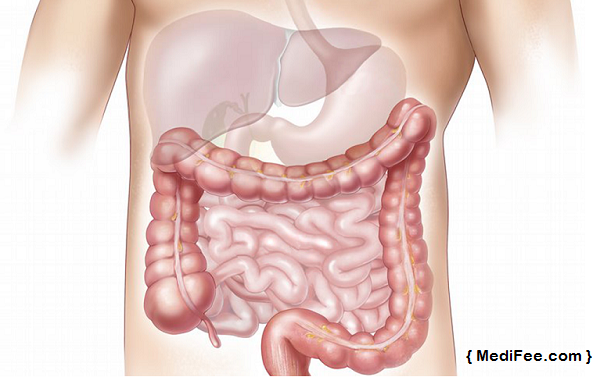 The digestive system breaks down the food you consume into molecules and provides benefits of them through nutrients like carbohydrates, proteins and the like.
The digestive system breaks down the food you consume into molecules and provides benefits of them through nutrients like carbohydrates, proteins and the like.
What are the digestive health problems troubling people?
There are few digestive health problems that people suffer commonly. Getting rid of them increases quality of digestive system. Few of the commonly noticed problems of digestive health are as follows:
- Constipation– Irregular bowel movement is prime proof that you have constipation and so a weak digestive health
- Celiac Disease– It is an autoimmune disorder wherein a person cannot digest any food containing gluten. This disorder affects the small intestine
- Inflammatory Bowel Disease (IBD)-Weight loss, anemia, stunted growth in children are indicators of IBD.
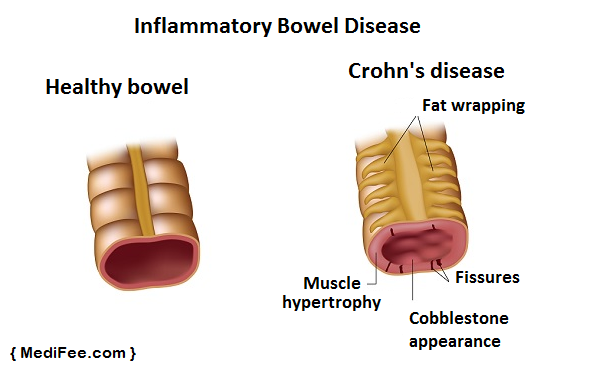 IBD is characterized by abdominal cramps and bloating. It is an illness of intestinal disorders wherein inflammation occurs in digestive tract. People leading sedentary lifestyles are more likely to be victims of IBD.
IBD is characterized by abdominal cramps and bloating. It is an illness of intestinal disorders wherein inflammation occurs in digestive tract. People leading sedentary lifestyles are more likely to be victims of IBD. - Lactose Intolerance– Lactose intolerant people lack the requisite enzyme to digest milk lactose. It is symptomized by belly pain and gas which happens due to lactose moving through large intestine without proper digestion. There are some people having lactose intolerance who cannot digest any milk products whatsoever.
- Crohn’s disease– It is a type of Inflammatory Bowel Disease (IBD). It affects the digestive tract and also triggers sudden and unexplained weight loss. If left untreated, the inflammation can lead to strictures in intestines and other related dangers.
What are the symptoms of digestive health problems?
- Diarrhea–
Bouts of diarrhea, blood in your stools, frequent visits to the washroom are stark indicators that you have inflammation in your large intestine. And that it is time you visit your doctor. - Inflamed rectal veins–
Hemorrhoids or event when there is blood in your anal area due to inflammation and swollen veins is a common disorder of your digestive tract - Anal fissure–
Fissure usually affects the lower intestine which is a part of one’s digestive system.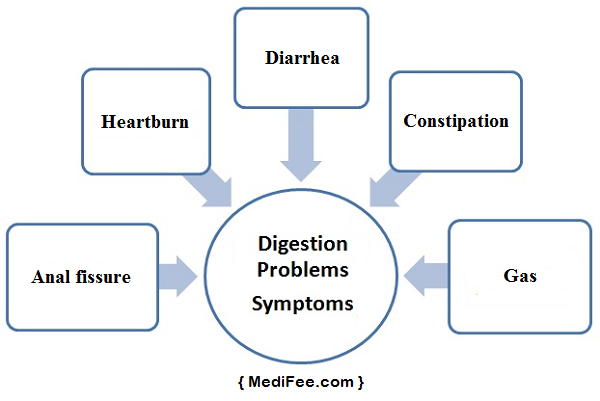 It has symptoms similar to that of hemorrhoids.
It has symptoms similar to that of hemorrhoids. - Burning sensation in chest–
Heartburn or burning sensation in chest is characteristic of digestive problems. It is time to schedule an appointment with your doctor if you encounter such a burning sensation more than 2 times in a week or there are recurring bouts of vomiting and nausea.
When is it time to see your doctor?
Digestive problems not only reduce the quality of your life, but also make you re-think on foods that go into your system. Common digestive issues like constipation, bowel syndrome, diarrhea and many others, fall into purview of a medical science field called gastroenterology. If such issues become common in your everyday life, then it is surely time you consult a gastroenterologist, a doctor specializing in this medical discipline. He/she may order few diagnostic tests if the problem is severe. The tests may be as follows:
- Colonoscopy– Colonoscopy enables the doctor to examine samples of large intestine through biopsy. Finding polyps, cysts, abnormal growths and inflamed tissues in large intestine is possible through this procedure. Colonoscopy is also performed to detect cancerous & precancerous polyps present in colon, which can be treated by various colon cancer surgical methods.
- Stool culture– Samples of stool are checked for presence of abnormal and harmful bacteria in digestive tract that is responsible for abdominal disorders.
- CT or CAT Scan– These are types of imaging options for diagnosing disorders through tissues from bones, muscles and other organs. This is done through X-ray imaging of the concerned body parts.
- Ultrasound or Sonography– High frequency sound waves are used for creating images of internal structures of concerned body parts on a computer.
- Esophageal pH monitoring– This enables the doctor to prescribe treatment to patients suffering from acid reflux. A thin plastic tube is inserted into the esophagus for ascertaining acidity levels in a person. Readings are measured overtime for proper diagnosis.
- Magnetic Resonance Imaging (MRI) Scan– The MRI machine is a cylindrical structure. The patient is moved into it in a lying down position. It then scans the internal organs to help the doctor detect insidious abnormalities.
So, what are the best and worst foods for your digestive health?
Your tummy does not always agree with everything you put into it. It has a tough time digesting some types of foods and this could explain all of your digestive tract disorders like constipation, diarrhea or puking. Let us first go through foods that are best for your digestive system. 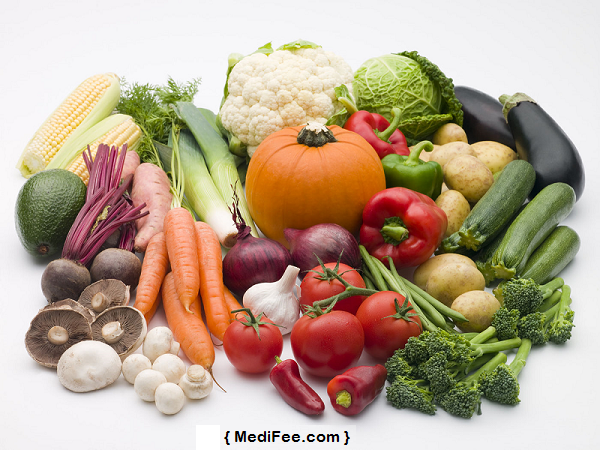 Foods to eat:
Foods to eat:
- Unprocessed apple juice– Teamed with honey, it is capable to eliminate effects of ulcer, bowel problems.
- Fiber-rich vegetables– green vegetables are rich sources of fibers. They eliminate toxins from the body and hence, help keeping your bowel clean. Digestion problems are controlled if digestive tract is cleansed every now and then. Consuming such vegetables like spinach, broccoli, fenugreek in the form of soup, pastas and salads is a great way to keep your bowel clean.
- Recommended Fruits-Bananas and apples contain pectin which is known to heal stomach ulcers and bowel problems. Including these fruits in your diet by using them as toppings on smoothies and oats is a delicious way to have food which is tasty as well as high on nutrition.
- Drink enough water– Do not forget to drink abundant amounts of water throughout the day. This indirectly helps in flushing out toxins from your body.
- Probiotic food products– Yogurt and certain fermented foods like pickles, chutneys, miso (a popular preparation of soybean and rice) and many more delicacies are actually beneficial for people to safeguard their digestive health
Foods to avoid:
- Dairy foods– People who cannot process dairy foods containing lactose need to avoid such products as they can have damaging effect on intestines.
- Chocolates– Milk Chocolates contain caffeine and milk content as their ingredients. These trigger diarrhea and constipation.
- Artificial sweeteners– Any and every food containing artificial sweeteners needs to be avoided for a healthy functioning bowel.
- Alcohol– Heavy drinking leads to inflamed pancreas. This leads to degraded digestive ability of digestion system. Colon cancer is another risk attached to alcohol. Breaking down of nutrients becomes very difficult for the body when there is alcohol in the system.
- Carbonated beverages– Soft drinks are guilty of containing soda, artificial sugars and preservatives; all of which are disastrous for digestion in the body. Digestion is affected and thus, it is an invitation for constipation and other bowel problems.
What are the supplements for regulating digestive health? 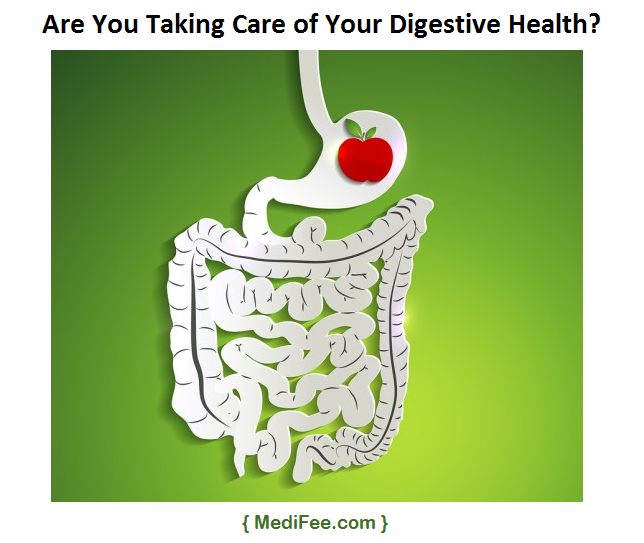
- Alkaline Foods– Lime, beetroot, green vegetables, onions, all are alkaline foods. Cooked with acid-forming foods like meat, eggs, cereals, they can be absolutely wholesome diet, easy to get digested. Such food combinations promote digestion, thereby reducing flatulence.
- Kiwi fruit– It has protein absorbing properties which make it a very good fruit for metabolism and digestion. Also it helps reducing bloating due to its high fiber content.
- Omega 3 fish oil– Omega 3 fish oil is a rich source of fatty acids essential for your digestion. Its anti-inflammatory properties make sure that digestion happens properly and toxins are prevented from getting into your blood stream.
- Mint– Apart from being used as garnishing and an add-on condiment in culinary preparations, it is nature’s best cure for digestion. Due to digestive enzymes present in it, it is used in appetizers which improves digestion.
- Aloe Vera juice– It is known to clear the bowel and hence, eliminate constipation. It has digestive properties which strengthens one’s digestive tract.
- Water melon– Being a watery fruit and a lycopene containing one, it has anti-inflammatory properties and ability to keep chronic inflammation at bay. It has fibers which can reduce constipation keeping indigestion away.
- Foods rich in zinc– Almonds, chickpeas, oatmeal, cheese and nuts are foods rich in zinc. Leaky gut syndrome and other similar digestive disorders could be avoided by a diet which contains zinc in proper proportions.
- Go easy on fatty foods– It is a well known fact that fatty foods like butter, chocolates, junk food, chips and other popular unhealthy foodstuffs are hard to digest. So, either reduce its consumption or team it with high-fiber foods to make it easily digestible.
So, to conclude, it is important to follow not only a strict diet, but also an immaculate fitness regime. It is important to keep a check on what is going into your system. If no, then be prepared to schedule visits to doctors and diagnostic centers for the better part of your life.